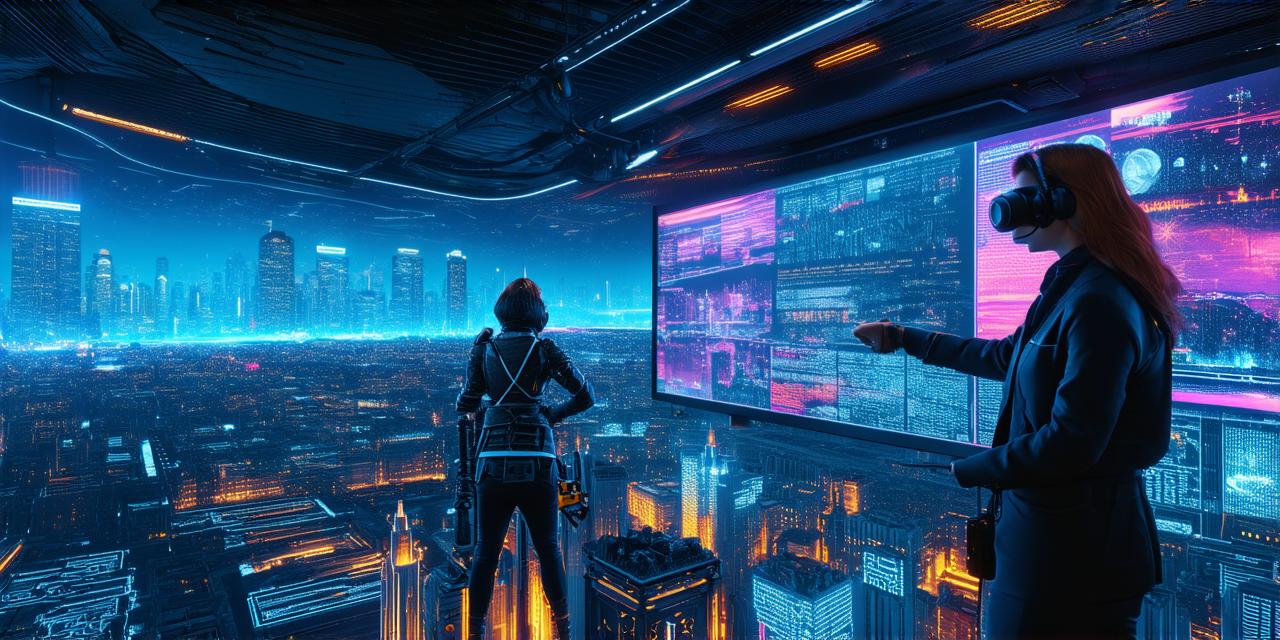The Metaverse: A Definition and Overview
The metaverse is a term used to describe a virtual world or a collection of interconnected virtual worlds where people can interact with each other through avatars in real-time. The concept of the metaverse has evolved over the years, with early examples dating back to the 1980s when virtual reality technology first emerged.
The Creation of Virtual Worlds: A Brief History
While the concept of virtual worlds dates back to the 1980s, it was the development of virtual reality technology in the early 2000s that truly paved the way for the creation of metaverses. In the early 2000s, virtual reality systems such as the Oculus Rift and the HTC Vive were developed, allowing users to immerse themselves in virtual worlds and interact with each other and objects within those environments.
The first major metaverse was created in 2003 when Linden Labs launched Second Life, a virtual world where users could create their own avatars and interact with each other through a variety of activities, such as building houses, attending events, and participating in games. Second Life quickly gained popularity, with over 1 million users signing up within the first year of its launch.
In the following years, other virtual worlds were developed, including World of Warcraft, which was launched in 2004 and quickly became one of the most popular online games of all time. In 2007, Apple introduced the iPhone, which revolutionized the way people interacted with virtual worlds by allowing them to access virtual reality content on their mobile devices.
The Impact of Virtual Worlds on Society
Virtual worlds have had a significant impact on society, both positive and negative. On one hand, virtual worlds provide a safe space for people to explore new ideas, connect with others who share their interests, and engage in creative activities. They also offer an escape from the stresses and challenges of real life.
On the other hand, virtual worlds have been criticized for contributing to social isolation, as people may become more engrossed in virtual worlds than they are in real-life relationships. Virtual worlds have also been linked to addiction, with some users spending hours each day in virtual environments.
The Future of Metaverses and Virtual Worlds
While the concept of metaverses is still relatively new, it is clear that virtual worlds will continue to evolve and impact society in the years to come. With the launch of platforms like Horizon Worlds and Microsoft Store, more people are likely to enter virtual worlds and engage with each other in real-time.
However, as virtual worlds continue to gain popularity, it will be important to address the potential negative impacts they may have on society, such as social isolation and addiction. It will also be important to ensure that virtual worlds are accessible and inclusive for all users, regardless of their background or abilities.
Summary
The creation of the metaverse is a fascinating topic that has evolved over the years, with early examples dating back to the 1980s when virtual reality technology first emerged. While the concept of the metaverse may be relatively new, it is clear that virtual worlds will continue to impact society in the years to come. Whether they are used for creative activities, socializing, or escaping from the stresses of real life, virtual worlds offer a unique and fascinating way for people to connect with each other and engage in new experiences.
FAQs:
* What is the difference between metaverses and virtual worlds?
A: Metaverses are collections of interconnected virtual worlds where people can interact with each other through avatars in real-time, while virtual worlds are individual environments that people can explore and interact with.
* When was the first virtual world launched?

A: The first virtual world, called “Alice’s Adventures in Wonderland,” was launched in 1983 by a computer science student named Ivan Sutherland.
* What is the future of metaverses and virtual worlds?
A: It is difficult to say exactly what the future holds for metaverses and virtual worlds, but it is clear that they will continue to evolve and impact society in the years to come. The launch of platforms like Horizon Worlds and Microsoft Store suggests that more people are likely to enter virtual worlds and engage with each other in real-time. However, it will be important to address potential negative impacts, such as social isolation and addiction, and ensure that virtual worlds are accessible and inclusive for all users.
